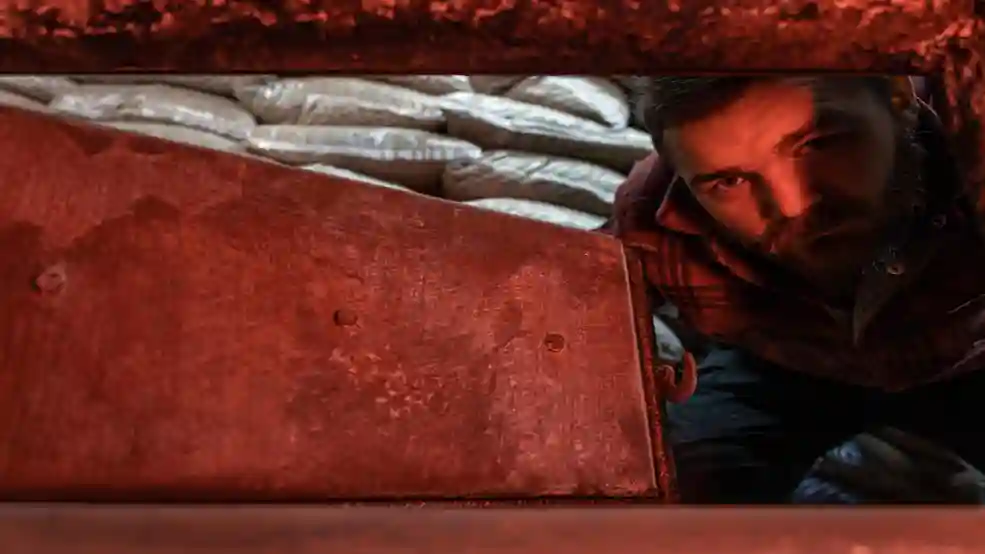
Did you know that, under certain conditions, an unauthorized occupant could claim legal ownership of your property in Nebraska? It sounds unbelievable, but Nebraska squatter rights, often tied to adverse possession laws, can pose serious challenges for property owners. If left unchecked, squatters could potentially gain legal standing. In this 2025 guide, we’ll walk you through Nebraska’s squatter laws, how to evict unwanted occupants and the best ways to prevent property disputes before they start.
What Are Squatter Rights in Nebraska?

Squatter rights, often associated with adverse possession laws, allow individuals to claim legal ownership of a property under specific conditions.
Does Nebraska have squatters' rights?
Yes, squatters do have Nebraska squatter rights under certain circumstances. To claim adverse possession in Nebraska, a squatter must occupy the property continuously for 10 years. This occupation must be:
- Actual: The squatter is physically present on the property, using it as an owner would.
- Open and Notorious: The occupation is obvious to anyone, including the legal owner.
- Exclusive: The squatter is not sharing possession with others, including the owner.
- Hostile: The occupation is without the permission of the owner.
- Continuous: The squatter maintains uninterrupted possession for the entire statutory period.
It's important to note that Nebraska does not require the squatter to have "color of title," meaning they don't need to possess any legal document claiming ownership. However, if the legal owner has a disability (e.g., being a minor, mentally incompetent, or imprisoned) at the start of the squatter's occupation, the statutory period may be extended.
Recent 2025 Legal Updates on Nebraska Squatter Rights
In January 2025, Nebraska introduced Legislative Bill 443 (LB443), aiming to address unlawful squatting. Sponsored by Senator Brad von Gillern, this bill seeks to create the offense of unlawful squatting and establish associated penalties. As of February 6, 2025, a hearing is scheduled for March 5, 2025, to discuss the bill further.
If enacted, LB443 would provide clearer legal grounds for property owners to take action against unauthorized occupants and deter potential squatters by imposing legal consequences. Property owners and occupants should stay informed about the progress of this bill, as it could significantly impact Nebraska squatter rights and property laws in Nebraska.
Squatting vs. Trespassing in Nebraska: What’s the Difference?
While both squatting and trespassing involve unauthorized entry onto property, Nebraska law distinguishes between the two based on intent, duration, and the occupant's actions.
How Nebraska law defines squatting vs. trespassing
In Nebraska, trespassing is defined as entering or remaining on a property without the owner's consent. This act is considered a criminal offense and can lead to legal action against the trespasser. On the other hand, squatting involves occupying an abandoned, unoccupied, or foreclosed property without the owner's permission. Unlike trespassing, squatting is typically treated as a civil matter.
When Does Squatting Become Illegal Trespassing?
Squatting starts as unauthorized occupancy but it doesn't always equate to criminal trespassing. However, if a property owner has explicitly prohibited entry or if the squatter has been informed they are unwelcome and they continue to occupy the property, their actions can escalate to criminal trespassing.
Additionally, squatters who use fraudulent documents to claim ownership or refuse to leave after an official eviction notice are engaging in illegal activities.
Squatting vs. Trespassing: A Side-by-Side Comparison
Let's delve deeper into the nuances between squatting and trespassing in Nebraska:
The 30-Day Squatter Rule in Nebraska: Fact or Fiction?
A common misconception is that occupying a property for 30 days automatically grants legal 30-day squatter rights to the occupant.
Does Staying in a Property for 30 Days Grant Legal Nebraska Squatter Rights?
In Nebraska, this is not the case. The state requires a squatter to maintain continuous and notorious possession of a property for 10 years before they can initiate an adverse possession Nebraska claim. This means that merely staying in a property for a month does not provide any legal entitlement or ownership rights. Property owners should remain vigilant and address unauthorized occupants promptly to prevent potential long-term claims.
When Does a Squatter Gain Tenant Protections under Nebraska squatter rights?
The transition from being considered a squatter to gaining tenant protections in Nebraska isn't solely based on the duration of stay. For an occupant to be recognized as a tenant, there typically needs to be an agreement (written or verbal) between the property owner and the occupant. Without such an agreement, the individual remains a squatter, lacking the legal protections afforded to tenants. However, if a property owner accepts payment or acknowledges the occupant in a manner consistent with a landlord-tenant relationship, the squatter may gain certain tenant rights.
Nebraska’s Adverse Possession Law: Can Squatters Claim Ownership?

Nebraska’s adverse possession laws provide a legal pathway for squatters to claim property, under very specific conditions.
What Is Adverse Possession?
Adverse possession is a legal term that allows an individual to claim ownership of a property they have occupied for a prolonged period—without the original owner’s consent. The idea behind this law is that land should be used productively rather than left abandoned. However, adverse possession is not an automatic right; the occupant must meet strict legal criteria, such as continuous and open possession, exclusivity, and a specific time requirement set by state law.
Legal Requirements for Squatters to Claim Property in Nebraska
To claim property through adverse possession in Nebraska, a squatter must fulfill the following legal requirements:
- Maintain continuous and uninterrupted possession for 10 years.
- Act as the property's owner, which may include making improvements, paying property taxes, or residing on the property.
- Ensure that the possession is open and obvious, providing notice to the legal owner and the public.
How to Evict a Squatter in Nebraska (Updated for 2025)
Whether it’s issuing proper legal notices or involving law enforcement, understanding the Nebraska eviction procedure is key to protecting your rights.
A 6-step guide to the Nebraska eviction process
Evicting a squatter legally under Nebraska squatter rights involves a series of legal steps to ensure compliance with state laws:
- Verify Unauthorized Occupancy: Confirm that the individual is occupying the property without permission and does not have a legitimate claim.
- Serve a Notice to Quit: Provide the squatter with a formal written notice to vacate the premises. Nebraska law typically requires a three-day notice for unauthorized occupants.
- File an Eviction Lawsuit: If the squatter does not leave after the notice period, file a "Forcible Entry and Detainer" action in the appropriate county court.
- Attend the Court Hearing: Present evidence of ownership and the squatter's unauthorized occupancy.
- Obtain a Writ of Restitution: If the court rules in favor of the property owner, this document authorizes law enforcement to remove the squatter.
- Enforce the Eviction: Coordinate with local law enforcement to physically remove the squatter from the property.
Required Legal Notices Before Eviction
Nebraska law mandates that property owners provide a three-day "Notice to Quit" to unauthorized occupants. This notice informs the squatter of the violation and the requirement to vacate the property within the specified timeframe. If the squatter refuses to leave, the property owner may need to pursue formal eviction proceedings, especially if they are planning to list the house to be moved to Nebraska or sell the property.
When Can Landlords Involve Law Enforcement?
Landlords can involve law enforcement after obtaining a court-issued Writ of Restitution. Attempting to remove a squatter without this legal authorization can lead to potential legal issues for the property owner.
What Landlords Can’t Do: Illegal Landlord Actions in Nebraska
When dealing with squatters, landlords might feel frustrated and tempted to take matters into their own hands. However, Nebraska law strictly regulates Nebraska eviction procedure, and self-help evictions are illegal. Landlords who violate these laws can face legal penalties, including fines and potential lawsuits from the squatters themselves.
Squatters have certain Nebraska squatter rights, particularly if they’ve lived on a property for an extended period. If a landlord wants to remove an unauthorized occupant, they must follow the proper legal Nebraska eviction procedure, which may involve lease termination if the squatter originally had a rental agreement that has since expired. This means serving the required notices, filing an eviction lawsuit, and obtaining a court order before law enforcement can intervene. Skipping these steps could lead to court-ordered damages, and in some cases, the squatter may even gain temporary tenant rights.
Vacant Properties & Squatters: Handling Abandoned Homes in Nebraska
Nebraska has its fair share of abandoned properties, and while these homes may seem forgotten, they often become prime targets for squatters.
When Is a House Considered Abandoned?
A property is generally considered abandoned when the owner has vacated it with no intention of returning, and the home shows signs of neglect. Some common indicators of abandonment include:
- Unpaid property taxes or utility bills
- Overgrown yards and visible disrepair
- No legal owner contact or activity for an extended period
- The property being unsecured or left open
Nebraska Emergency Property Regulations
If a property poses health or safety risks, Nebraska state and local governments have emergency regulations to address the issue. Authorities may:
- Secure or board up vacant properties to prevent unauthorized entry
- Issue fines to property owners for failing to maintain their land
- Condemn or demolish hazardous buildings deemed unlivable
Landlords and property owners should regularly inspect their vacant properties and take legal action against squatters before they can establish a claim.
How to Protect Your Property from Squatters in Nebraska

Preventing squatters from occupying your property is far easier than removing them once they’ve settled in.
The Role of Rental Agreements in Preventing Squatting
One of the best ways to prevent squatting is to have clear, legally binding rental agreements in place. If a property is being rented, a formal lease can allow that:
- Only authorized tenants have legal access
- Occupancy terms and payment obligations are documented
- Landlords have grounds to evict unauthorized occupants quickly
Note: Verbal agreements or informal rental arrangements can create gray areas, making it harder to remove someone who claims to have been permitted to stay. Always use written contracts to protect your rights.
Nebraska Repair and Deduct Laws for Landlords
Nebraska allows tenants to use repair and deduct laws, meaning they can fix certain issues themselves and deduct the cost from their rent. While this law is meant to protect tenants, it can sometimes create confusion in squatter situations.
If a squatter claims they made repairs and now have a right to stay, landlords should document all maintenance issues, keep records of their own repairs, and avoid accepting money or services from unauthorized occupants. The best defense against squatters is proactive property management. Regular inspections, clear lease agreements, and immediate legal action against unauthorized occupants can help Nebraska landlords maintain control over their properties.
Final Thoughts
Having the right legal protections under Nebraska squatter rights from day one, you can handle who stays and who goes on your property. Platforms like LeaseRunner provide valuable tools for landlords, including tenant screening, lease creation, and online rent collection, all elements in preventing unauthorized occupancy. These preventative steps can make all the difference in avoiding costly disputes over squatter claims!
FAQs
Q1: What are the specific requirements for squatters to claim adverse possession in Nebraska?
Under Nebraska squatter rights, a squatter must demonstrate that their possession of the property has been actual, open and notorious, exclusive, continuous, and hostile—meaning they occupy and use the property just as an owner would, without the true owner's permission. These criteria establish that the squatter’s presence is clear and unequivocal, paving the way for an adverse possession claim. Under Nebraska squatter rights, a squatter must demonstrate that their possession of the property has been actual, open and notorious, exclusive, continuous, and hostile—meaning they occupy and use the property just as an owner would, without the true owner's permission. These criteria establish that the squatter’s presence is clear and unequivocal, paving the way for an adverse possession claim.
Q2: How long must a squatter occupy a property in Nebraska before they can claim rights?
Nebraska squatter rights require that the squatter occupy the property continuously for 10 years before they can claim adverse possession. If the property owner is legally disabled, the occupation period extends to 20 years.


